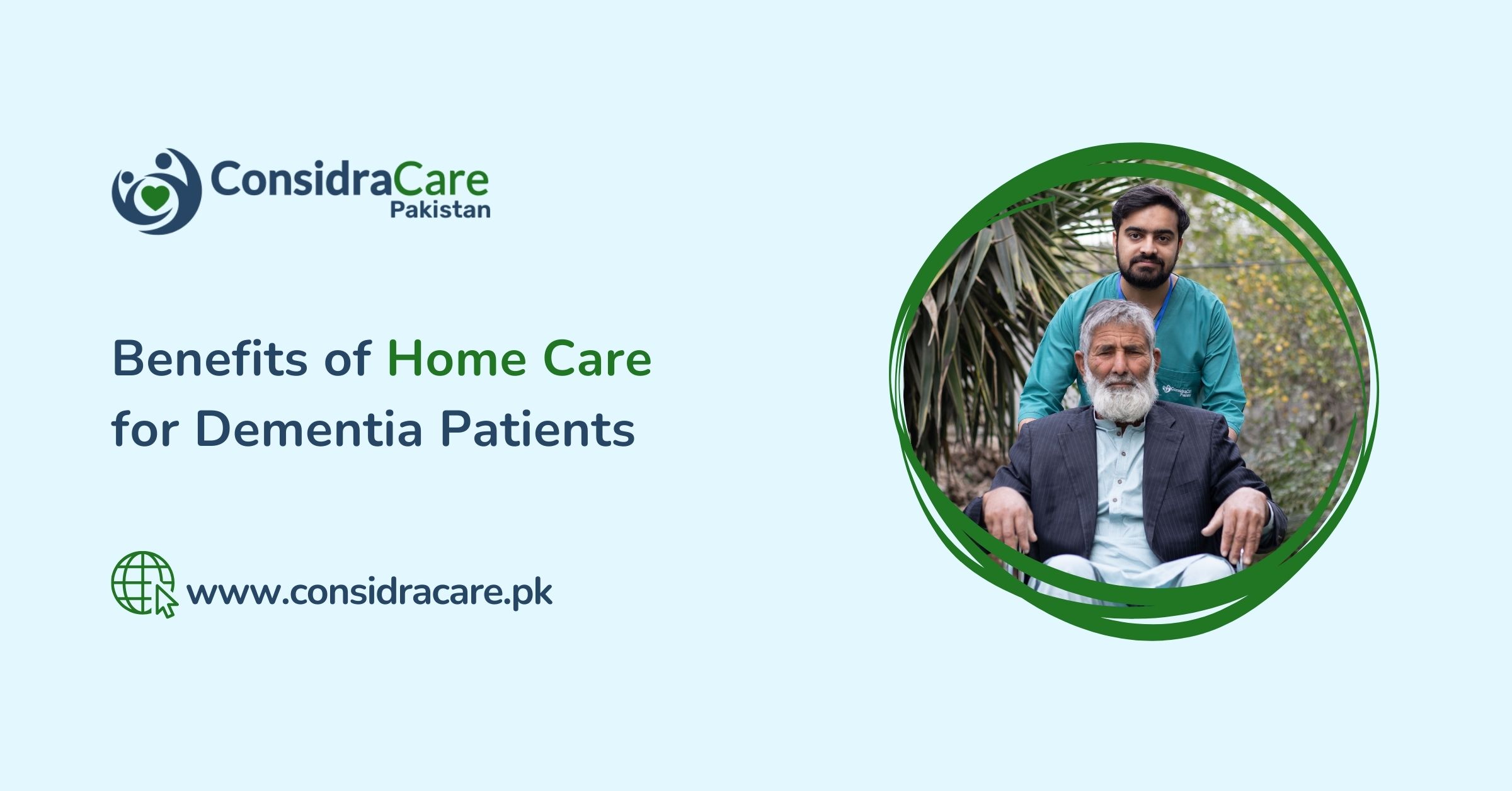Dementia doesn’t just change the life of the person affected, it impacts the entire family. In-home care can help ease this burden by providing the right support for your loved one at home. It helps manage difficult behaviors and keeps your loved one safe.
Not only does it improve the quality of life for dementia patients, but it also gives families peace of mind. In this article, we’ll look at how in-home care can truly help your loved one living with dementia.
Benefits of Home Care for Dementia Patients:
Home care can benefit individuals with dementia in three main ways:
-
It helps slow cognitive decline.
-
It offers support for activities of daily living.
-
It addresses behavioral and psychological challenges.
Here is a look at the benefits in detail.
1. Comfortable and Familiar Environment:
Dementia affects the brain areas responsible for memory, orientation, and attention. Sudden changes in surroundings can lead to extreme distress, confusion, and restlessness.
Staying at home while receiving proper care helps address these challenges. In-home caregivers make small adjustments like keeping rooms free from distractions or adding labels, so patients can move around safely without getting lost or overwhelmed, even with simple tasks like going to the bathroom.
Caregivers also make sure the environment triggers familiar memories, which helps ease agitation and anxiety.
Read More: What Really Causes Dementia? A Look at Risk Factors and Triggers
2. Constant Monitoring:
In-home caregivers provide continuous supervision, ensuring safety and immediate assistance when needed. This helps prevent common risks for dementia patients, such as wandering, falls, or accidents, and allows for a quick response to changes in their condition.
At ConsidraCare, we keep families part of this constant support. Through our platform, we share daily updates and activity logs with families, helping them stay informed.
3. Personalized Care:
Personalized dementia care plans are designed to meet the unique needs, preferences, and abilities of each individual with dementia. These plans consider the person’s stage of dementia, medical history, and personal interests to provide the most appropriate support. These plans are a great way to preserve a person’s independence and dignity.
We take a similar approach when creating our care plans for people with dementia. Our plan reflects your loved one’s unique situation and is flexible enough to evolve according to their changing needs.
4. Structured Yet Flexible Routines:
In-home care offers both structure and flexibility. The structure helps your loved one feel safe and know what to expect each day, while the flexibility allows them to take part in activities they enjoy, in a way that suits their mood and energy.
Caregivers gently guide the day with routine, like mealtimes, rest, and personal care, while also making space for meaningful activities that keep your loved one engaged. This balance of routine and flexibility helps your loved one feel more comfortable, involved, and cared for at home.

5. Consistent Care:
When the same caregiver is with your loved one every day, it helps them feel more comfortable and settled. They start to build a connection and trust, which is especially important for someone living with dementia. The caregiver learns their routines, what they enjoy, what helps them relax, and what might upset or confuse them.
Get In-home Dementia Care by Dementia Care Experts:
Dementia care requires a specific set of skills and experience to truly bring comfort to those suffering from it.
If you want to improve the quality of life for your loved one with dementia, our expert dementia care services are here to help. We understand the challenges of this condition, how it progresses, and how it affects your loved one. Our dementia caregivers are trained in Gentle Persuasive Approaches (GPA), which gives them the skills to handle behavioral challenges and outbursts with patience and dignity. We also provide real-time updates through our platform, giving you peace of mind that your loved one’s needs are being met with care and attention.
Get expert dementia care for your loved one today!
FAQ’s
1. What Does a Dementia Nurse Do in Pakistan?
A dementia nurse in Pakistan helps people with memory loss live more safely and comfortably. They can assist with daily tasks like eating, bathing, or taking medicines. They also guide families on how to care for their loved one, watch for changes in behavior, and give support during tough moments. Some may visit patients at home, while others work in clinics or hospitals.
2. Do Dementia Patients Do Better at Home?
Yes, many dementia patients feel more at ease at home. Being in a familiar place with people they know often helps reduce confusion and stress. They can stick to their daily habits, feel more relaxed, and enjoy better emotional support from family members.
3. What Is the Best Thing for a Dementia Patient?
Spending quality time doing simple activities is often the best thing for someone with dementia. Things like listening to Quranic recitation, gardening, folding clothes, or even just sitting together and talking can help. These moments make them feel valued. The goal is to keep them active without overwhelming them.
4. What Is the Best Care for Dementia Patients?
Good care for a dementia patient means keeping things consistent and following a set routine. Regular patterns like meals, prayers, and rest help avoid confusion. Caregivers should speak gently, keep instructions simple, and stay patient. Giving emotional support, helping with everyday tasks, and making the person feel safe and loved go a long way in improving their quality of life.
5. What Do Nurses Do for Dementia Patients?
Nurses caring for dementia patients assist with health checks, medication, and personal care. They comfort patients when they’re upset, manage behavioral challenges, and complications associated with the disease. They also educate family members on how to cope with changes.



